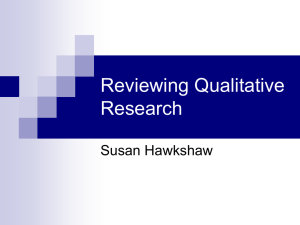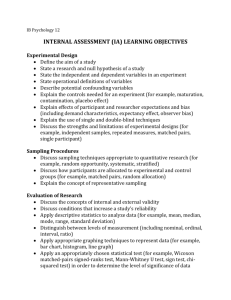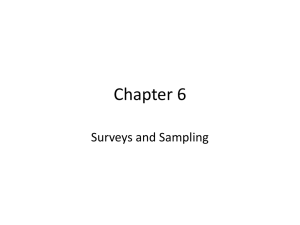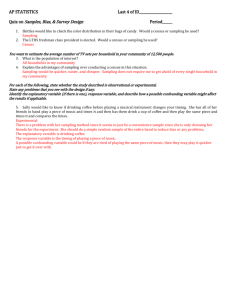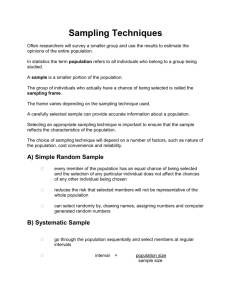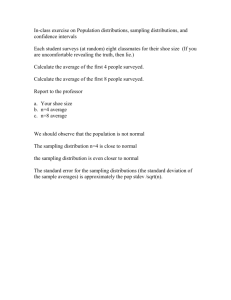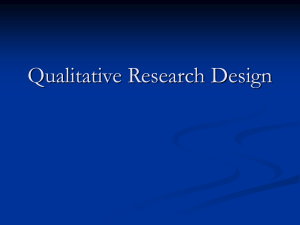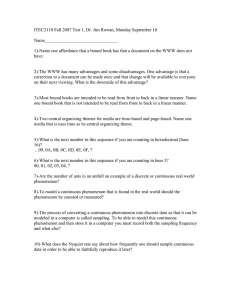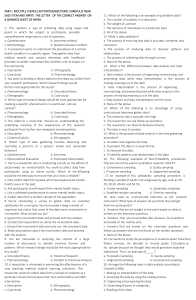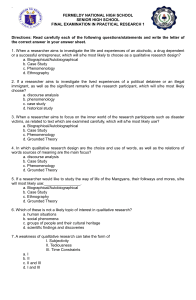Presentation2_guide - Creative
advertisement
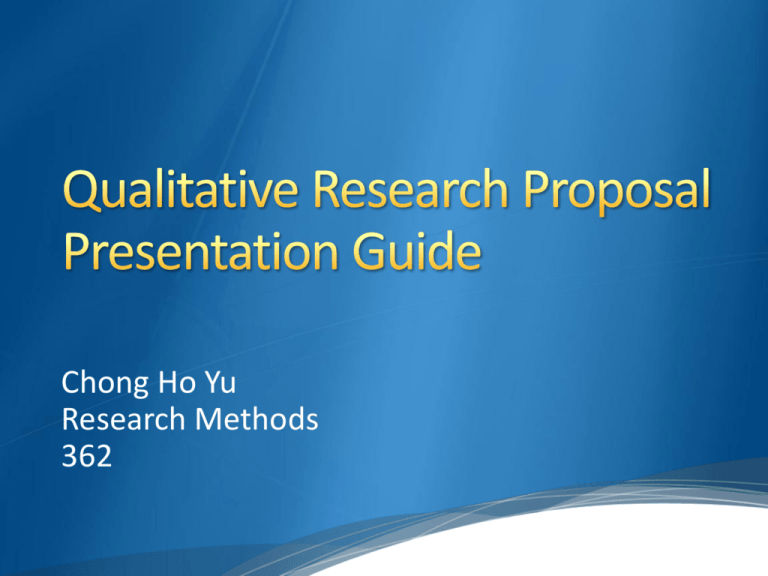
Chong Ho Yu Research Methods 362 What is the overall objective of this study? Descriptive ad exploratory? Critical? Explanatory? Example: According to “You lost me” written by David Kinnaman, 59% of young people who were raised in a Christian family lost their faith by the age of 30. This qualitative study aims to understand why they gave up their belief. The RQ could be about what (descriptive), or how and why (explanatory and critical). Examples: Grounded theory: What are the concepts and constructs related to this phenomenon? What is the plausible theory to explain this phenomenon? Ethnography: What is the social and cultural context of deconversion? Narrative research: What are the stories of deconversed Christians? Phenomenology: What is the lived experience of deconversed Christians? Prior research related to this topic. Background information that can help the readers understand the issue. References should be reliable sources (e.g. scholarly books, professional journals…etc.). Introductory textbooks/books, magazine articles, and websites that are not affiliated with authoritative organizations can only be cited with caution. What is the research design? What is the rationale? Why is it a good fit to the RQ? Make sure to state which version, if there are variants? Examples: Grounded theory: Traditional? Evolved? Phenomenology: Moustakai? Gogori? Constructivist? Usually qualitative researchers do not use quantitative sampling methods, such as random sampling and multi-stage sampling Purposeful sampling: selects participants for a specific reason e.g. age, gender, race, SES. culture, experience. Example: qualified participants are those who are raised in a Christian family and decided to give up the Christian faith by the age of 30. Sometimes there s no pre-determined sample size. Sampling is done until redundancy in data is reached (saturation): additional data cannot add more insight into the research project. How big the sample size is less important when you intend to understand the dynamic of the phenomenon instead of generalizing the result to a broader population. Observation in the field (e.g. Attend skeptics Society, Atheist Alliance, Secular Coalition…etc.) Interview Structured interview Semi-structured interview Focus group Document review e.g. Media reports (TV shows, YouTube videos, newspapers, books, magazines, journals…etc.) Analytical rigor: Is data analysis inductive (data-driven) or abductive (inference to the best explanation)? Auditability: Can the decision trail traceable? What are the rules of coding? Theoretical significance? Would a meaningful and insightful picture of the phenomena under study emerge? Avoid “so what” or “now what” conclusion Credibility Can the data and data analysis support the conclusion? Is there any researcher triangulation (more than one researcher code and/or interpret the data)? Data triangulation? Method triangulation? Transferability: similar to generalizability Dependability: Consistency between the data and the findings (similar to reliability in quantitative research) Confirmability: limit bias, disclose yourself

